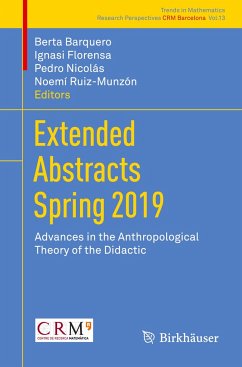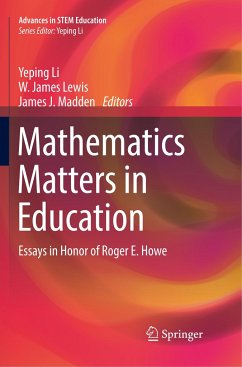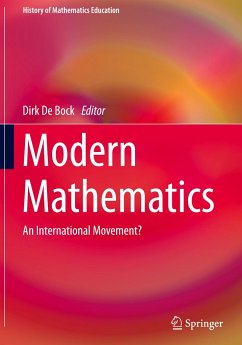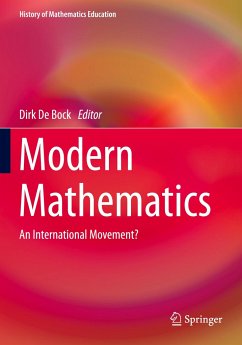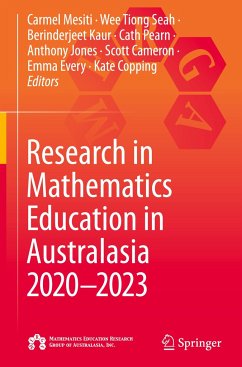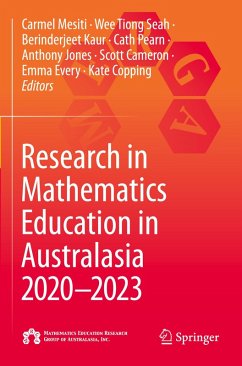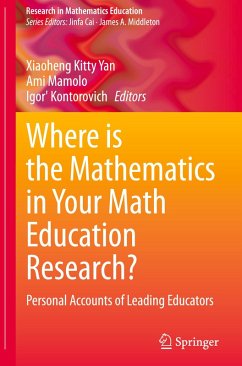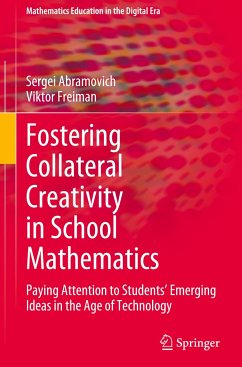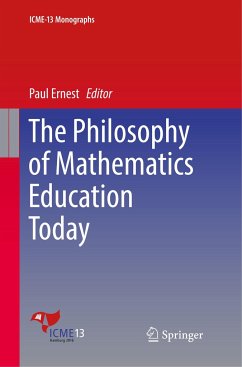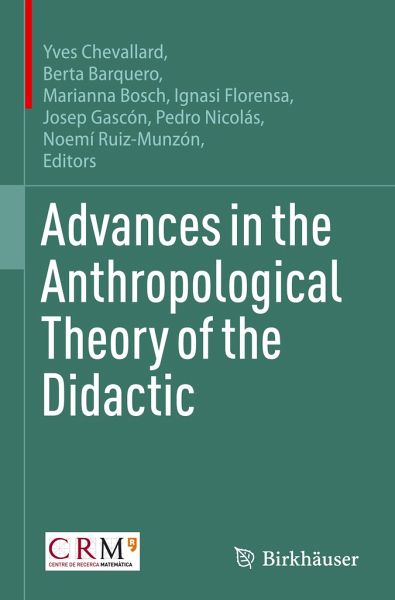
Advances in the Anthropological Theory of the Didactic

PAYBACK Punkte
49 °P sammeln!
The book focuses on the latest developments of the Anthropological Theory of the Didactic (ATD) and its links with other approaches in mathematics education. Leading researchers in the ATD and especially its creator, Yves Chevallard, present recent research results, theoretical advances and new methodologies in this approach, concerning critical educational problems at all levels. The book is addressed to researchers in mathematics education and all related fields, to teacher educators and teachers in primary, secondary and tertiary education interested in curriculum issues and research in did...
The book focuses on the latest developments of the Anthropological Theory of the Didactic (ATD) and its links with other approaches in mathematics education. Leading researchers in the ATD and especially its creator, Yves Chevallard, present recent research results, theoretical advances and new methodologies in this approach, concerning critical educational problems at all levels. The book is addressed to researchers in mathematics education and all related fields, to teacher educators and teachers in primary, secondary and tertiary education interested in curriculum issues and research in didactics.
The book includes four sections that correspond to four axes of current research in the framework of the ATD. The first one studies the relations between the ATD and other research frameworks. The second section focuses on the crucial role of didactics in teacher education, and the experiences carried out at different instructional levels. The third section addresses the curriculum problem in the historical transition from the classical paradigm of visiting works to the emerging didactic paradigm of questioning the world. The last section is about research in didactics at the university level, with investigations about the analysis of didactic transposition processes and the design and implementation of various instructional formats.
The book includes four sections that correspond to four axes of current research in the framework of the ATD. The first one studies the relations between the ATD and other research frameworks. The second section focuses on the crucial role of didactics in teacher education, and the experiences carried out at different instructional levels. The third section addresses the curriculum problem in the historical transition from the classical paradigm of visiting works to the emerging didactic paradigm of questioning the world. The last section is about research in didactics at the university level, with investigations about the analysis of didactic transposition processes and the design and implementation of various instructional formats.





